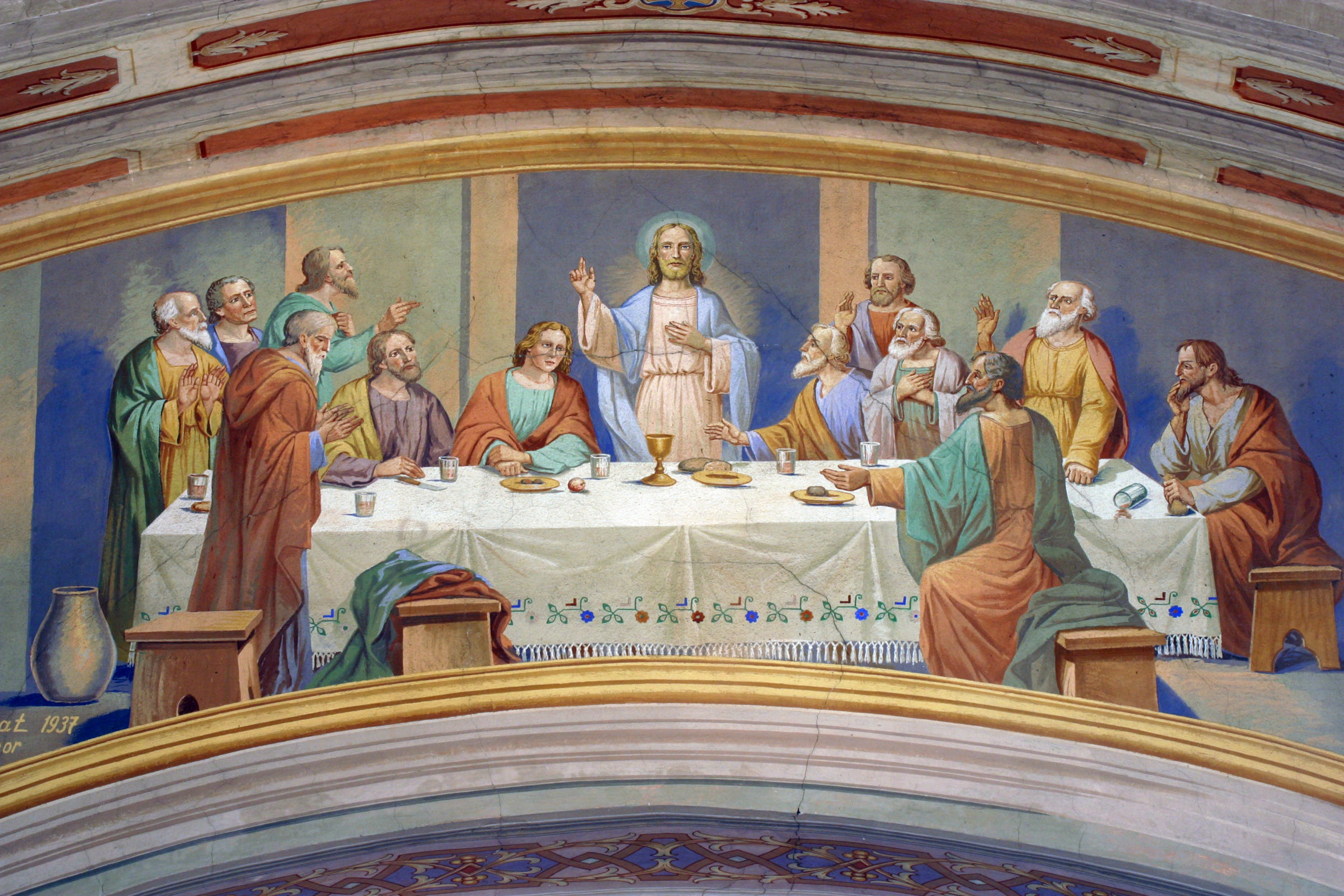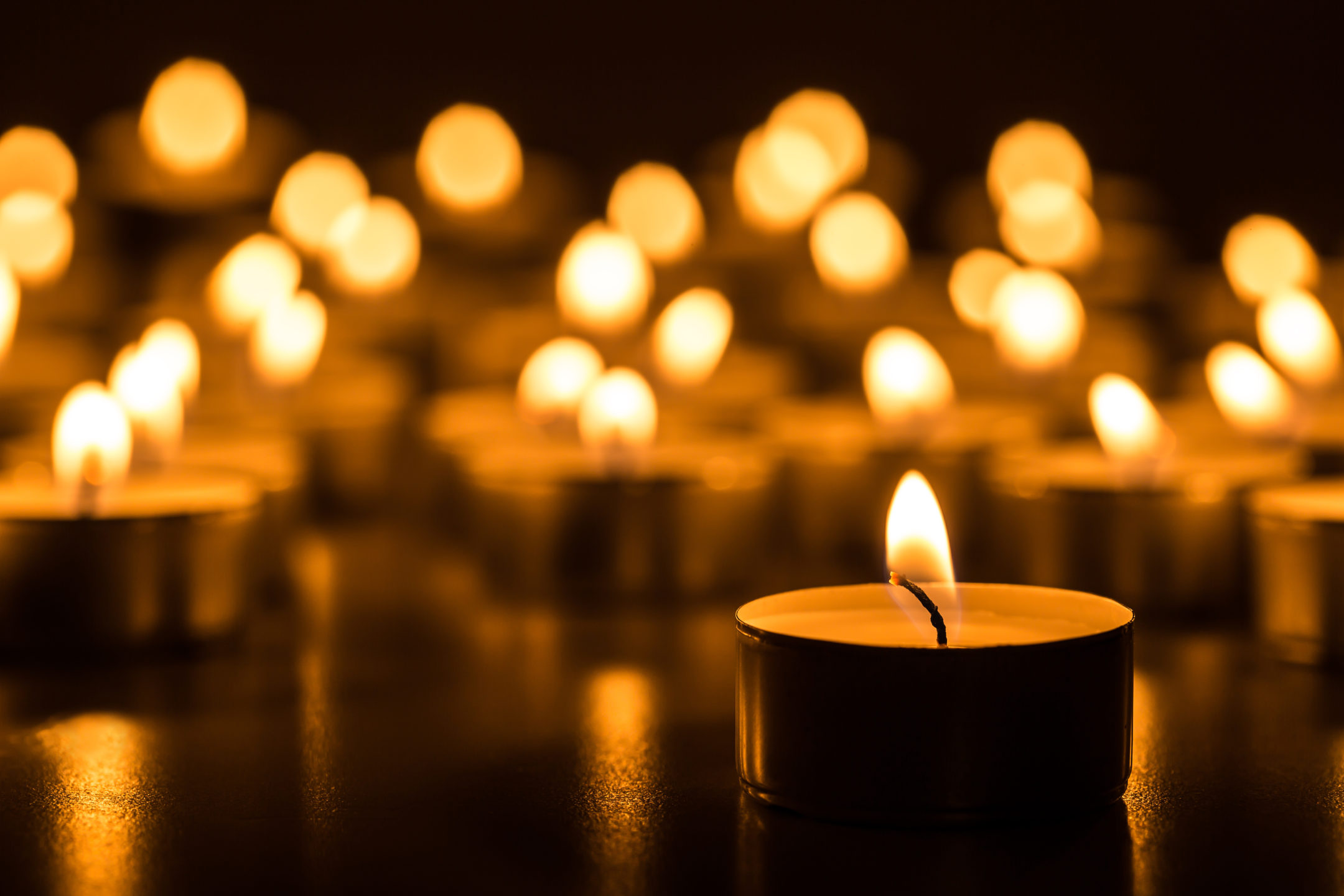At that table he instituted the ritual meal we still celebrate. Jesus took bread, blessed it, broke it, and shared it. In blessing it, he said: “This is my body” (Luke 22:19).
God has the deepest respect for our freedom.
He doesn’t intrude in our lives uninvited. He doesn’t coerce us.
At the end of St. Luke’s Gospel he even gives two disciples “the impression that he was going on farther” (Luke 24:28).
He did this so that they might take the initiative — so that they could invite him to stay.
And they did. “They urged him, ‘Stay with us’ … So he went in to stay with them” (Luke 24:29).
He did more. He broke bread with them. The Gospel tells us that “he was made known to them in the breaking of the bread” (Luke 24:35).
Even today, that is how he stays with us, and that’s how he’s made known to us. It’s the Mass.
On Holy Thursday, the Church celebrates the day the Lord established the Mass and ordained priests to celebrate it forever. It was a day he greeted with great anticipation. He told his Apostles: “I have eagerly desired to eat this Passover with you before I suffer” (Luke 22:15). St. John saw that Passover meal as the beginning of Jesus’ ultimate expression of love: “When Jesus knew that his hour had come to depart out of this world to the Father, having loved his own who were in the world, he loved them to the end” (John 13:1).
At that table he instituted the ritual meal we still celebrate. Jesus took bread, blessed it, broke it, and shared it. In blessing it, he said: “This is my body” (Luke 22:19).
Then he took a chalice filled with wine and said: “This cup is the new covenant in my blood, which will be shed for you” (Luke 22:20).
He also told the Apostles that they should do as he had done. He said, “do this in memory of me.”
They must have been puzzled. They were Jews and had celebrated the Passover meal since they were teenagers. It was tightly scripted. But Jesus was doing something new here, and telling them to carry it forward.
Ever afterward, the churches the Apostles founded were defined by Jesus’ action: “They devoted themselves to … the breaking of the bread and the prayers” (Acts 2:42).
Even before the Last Supper, Jesus had made clear that this meal — the Mass — would be the way he stayed with the Church forever. It would be his real presence.
Teaching in the synagogue at Capernaum, he told the people there that God was giving them “the true bread from heaven” (John 6:32). Expecting to be fed, the crowd pressed him on this. He said that they were mistaken if they expected ordinary bread. He told them: “I am the bread of life” (John 6:35).
They raised objections to his cryptic statements. But the more they objected, the more he insisted. “The bread that I will give,” he said, “is my flesh for the life of the world” (6:51). And then he added, for utmost clarity: “For my flesh is true food, and my blood is true drink” (6:55).
It must have been an unforgettable moment for the Apostles, and surely they remembered it when they heard him say, “This is my body.”
Before he ascended to heaven, Jesus promised his faithful: “Behold, I am with you always, until the end of the age” (Matthew 28:20). And he’s still here.

